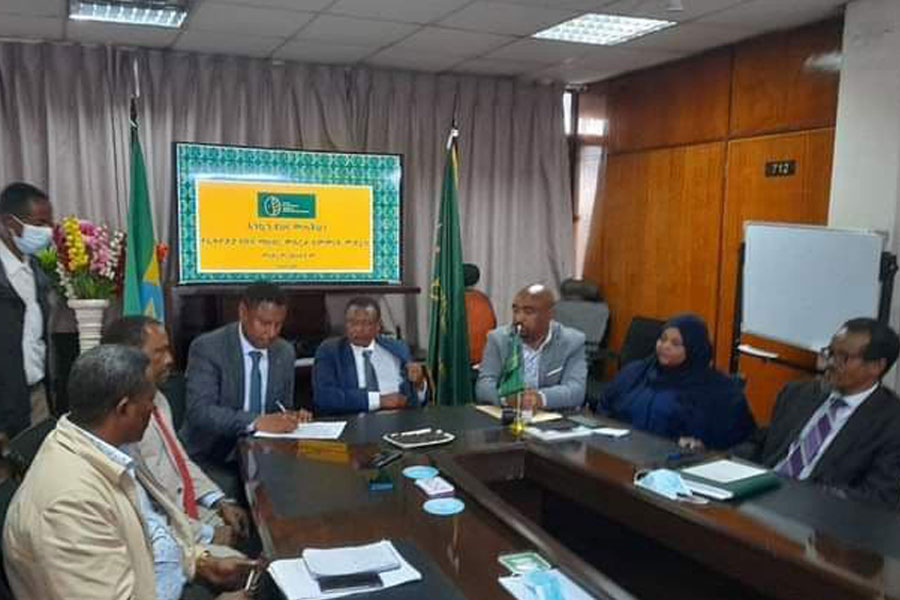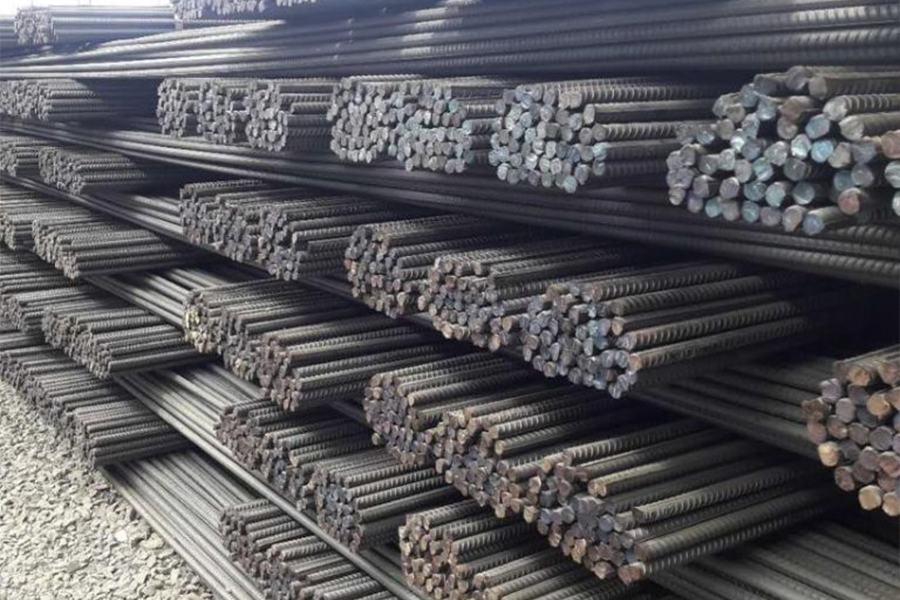
Radar | Oct 07,2023
An ambitious bill that sets to seal the skill gap between foreign and local contractors through joint venture modalities is pending ratification from the Parliament.
The proclamation was drafted by experts from the Ethiopian Institute of Architecture and Construction Management Institute (CMI).
Officials at the Institute hope to revitalise the construction industry, which has been beset with surging prices of inputs and domination by foreign contractors who have undertaken a significant share of capital projects in the country.
According to Tamrat Mulu, general manager of the Institute, there is currently no law to regulate joint ventures made between local and foreign firms. He indicated that contractors often use agreements made overseas to gain legal status for joint ventures.
"A legal framework has been deemed necessary," he told Fortune.
Over 90pc of the mega-projects have been covered by Chinese contractors who have garnered a reputation for overwhelmingly outcompeting local competition, according to the manager.
Tamrat expects the proclamation will bring technology transfer as local contractors learn from tools and technologies along with organisational management from multinational companies who engage in megaprojects requiring huge amounts of capital.
The manager indicates that contemporary projects are complex endeavours requiring nuanced approaches, meticulous cash flow management and intricate contractual agreements not yet adopted by local firms.
"They will learn a lot through joint ventures," he told Fortune.
Although the number of projects a contractor can manage at once is not stipulated, the bill allows agreements between two or more parties bound to a foreign contractor through a third-party project sharing profits and losses while underscoring the domination of one party in a joint venture agreement is prohibited.
The construction industry contributes 19pc to Ethiopia's GDP and employs around two million people. However, it has failed to grow in its use of technology and diversity of project output.
Over 20,000 contractors in the country are set to benefit from the joint venture modality as it allows local firms to pool financial and human capital to take on large projects.
Genale Construction Plc, a grade one contractor which has undertaken 10 mega projects throughout its two-decade history, is going through tough times as the projects handed to local contractors kept dwindling in recent years.
Tariku Nigussie, human resources manager at Genale, noticed a lifeline provided by the venture despite his apprehensions over limiting contractual shackles being imposed by foreign companies.
"Contracts should favour local firms," he told Fortune.
Tariku questioned whether foreign companies would be interested in forming partnerships with local companies in consideration of the little they would gain.
Under the Ethiopian Construction Association, the 2,400 contractors echo similar sentiments with their President Grima Habtemariam, expressing hope for improved financial liquidity and technology through the joint venture schemes.
"Most contractors are currently idle," he told Fortune of an industry-wide shock drilling his point with "the rest are hanging by a thread from insolvency."
Girma points to construction input prices surging several folds and a foreign currency crunch impeding aspirations for imported alternatives. He indicated poor project financial appraisals, an absence of technology and a shortage of managerial skills would continue to prove as challenges in competitive advantages for local firms.
Girma referred to the general slowdown in the economy due to conflicts over the past few years as significantly restricting the capacities of local contractors, indicating that peace and security are vital for construction.
Officials within the Ministry of Urban & Infrastructure indicate that joint ventures and subcontracting are part of the construction policy reforms and believe they will help firms overcome hurdles that are typically a cause for project delays and suspensions.
"It's all about building local contractor's capacity," said Medina Ahmed, director of construction & infrastructure at the Ministry.
Experts observe that the construction industry has been overtaken by Chinese contractors in the past decade who have had a better competitive edge and technical capability than local companies that have failed to evolve their capacities.
Abebe Dinku (Prof), a seasoned civil engineer appreciated the motive to 'level up' local contractors' capabilities while he foresees little impact if a mindset shift does not coincide.
While he believes the benefits of joint ventures are undisputed in the construction industry, Abebe suggests that when foreign and local contractors eventually form partnerships, they should be able to clearly state strategic outlines of their profits and losses thoroughly.
Abebe recalled a decade-old joint venture between the Chinese-based construction company Nori-la Engineering and the Ethiopian Lalibela construction company, which resulted in the liquidation of assets by the former due to improperly managed contracts.
"Early interaction can help predict long-term performance," Abebe told Fortune.
PUBLISHED ON
Oct 07,2023 [ VOL
24 , NO
1223]

Radar | Oct 07,2023

Fortune News | Mar 25,2023

Radar | May 18,2019

Fortune News | Oct 12,2025

Fortune News | Feb 25,2023

Fortune News | Jun 26,2021

Radar | May 20,2023

Fortune News | Sep 26,2021

Fortune News | Nov 11,2023

Radar | Apr 24,2023

Dec 22 , 2024 . By TIZITA SHEWAFERAW
Charged with transforming colossal state-owned enterprises into modern and competitiv...

Aug 18 , 2024 . By AKSAH ITALO
Although predictable Yonas Zerihun's job in the ride-hailing service is not immune to...

Jul 28 , 2024 . By TIZITA SHEWAFERAW
Unhabitual, perhaps too many, Samuel Gebreyohannes, 38, used to occasionally enjoy a couple of beers at breakfast. However, he recently swit...

Jul 13 , 2024 . By AKSAH ITALO
Investors who rely on tractors, trucks, and field vehicles for commuting, transporting commodities, and f...

Nov 1 , 2025
The National Bank of Ethiopia (NBE) issued a statement two weeks ago that appeared to...

Oct 25 , 2025
The regulatory machinery is on overdrive. In only two years, no fewer than 35 new pro...

Oct 18 , 2025
The political establishment, notably the ruling party and its top brass, has become p...

Oct 11 , 2025
Ladislas Farago, a roving Associated Press (AP) correspondent, arrived in Ethiopia in...